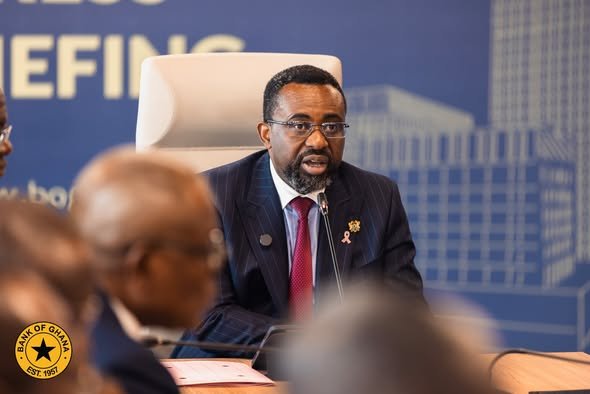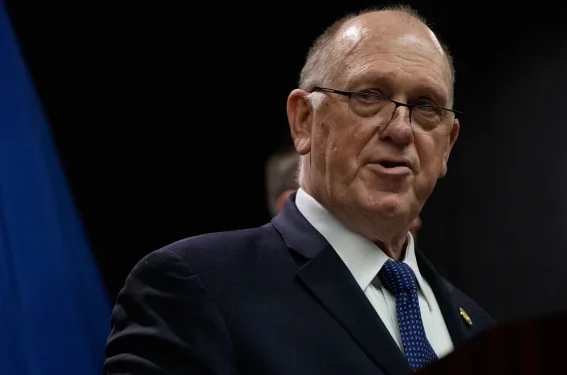Ghana’s economy is set for a major boost following a bold decision by the Bank of Ghana (BoG) to sharply reduce its policy rate.
In a landmark move, the Monetary Policy Committee (MPC) cut the policy rate by 350 basis points, bringing it down from 21.5 percent to 18 percent. The announcement came after the 127th MPC meeting on November 25, 2025, and was made by Dr. Johnson Asiama, Governor of the Bank of Ghana.
This move has attracted widespread attention from businesses, investors, and households, all watching the central bank’s efforts to stabilize inflation while supporting economic growth.
Speaking at a press briefing at the BoG headquarters in Accra, Dr. Asiama explained that the majority of MPC members voted in favor of the reduction. He emphasized that the committee is optimistic about maintaining price stability in the economy, noting:
“The bank projects a continued stable inflation profile around the target and well into the first half of next year, 2026. This is against the backdrop that current risks in the outlook to shift the path of inflation away from target have moderated significantly.”
Dr. Johnson Asiama
Inflation currently stands at 8 percent, reflecting a steady moderation in price pressures. The sharp rate cut demonstrates the committee’s confidence in Ghana’s macroeconomic fundamentals and its readiness to stimulate investment and growth.
Supporting Economic Growth
The MPC’s decision was also influenced by the prevailing high real interest rate, which has constrained borrowing and investment. Lowering the policy rate is expected to improve access to credit, particularly for small and medium-sized enterprises (SMEs), which form a key pillar of Ghana’s economy.
“Given these considerations, the committee, by majority decision, voted to lower the monetary policy rate further by 350 basis points to 18.0%.”
Dr. Johnson Asiama
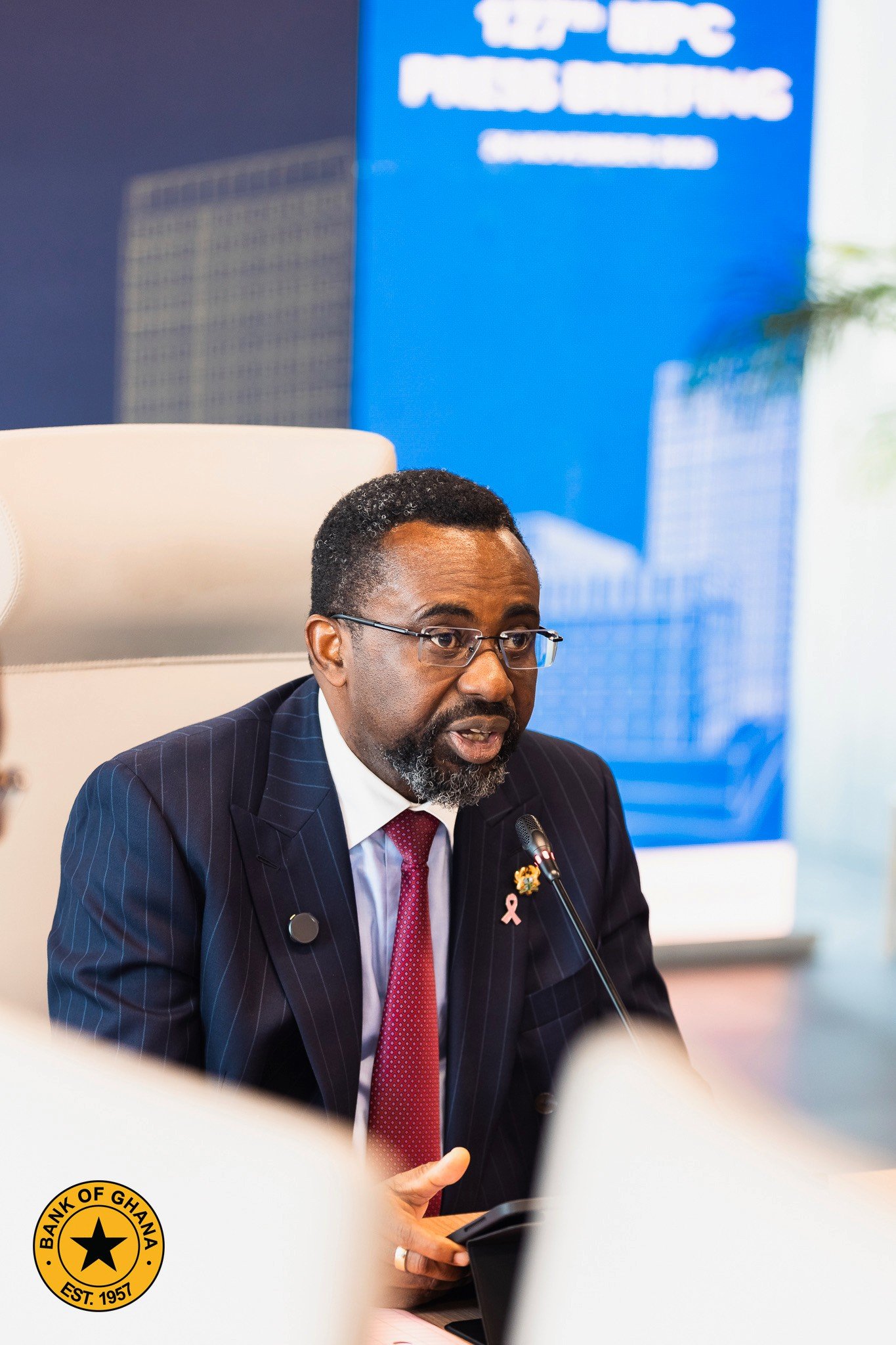
The rate reduction aims to create a more favorable borrowing environment, allowing households and businesses to access cheaper credit, fuel consumption, and support investment. Analysts suggest that the move could help SMEs expand operations, hire more workers, and invest in new technologies, further contributing to economic growth.
Inflation Remains Under Control
Despite the policy rate cut, the MPC emphasized its commitment to maintaining price stability. Dr. Asiama explained: “The bank projects a continued stable inflation profile around the target and well into the first half of next year, 2026.”
“The committee will continue to monitor development and take the appropriate policy decisions to ensure sound and stable macroeconomic conditions.”
Dr. Johnson Asiama
By keeping inflation in check, the BoG aims to balance growth stimulation with protecting the purchasing power of Ghanaian consumers. This careful approach seeks to prevent overheating the economy while encouraging sustainable development.
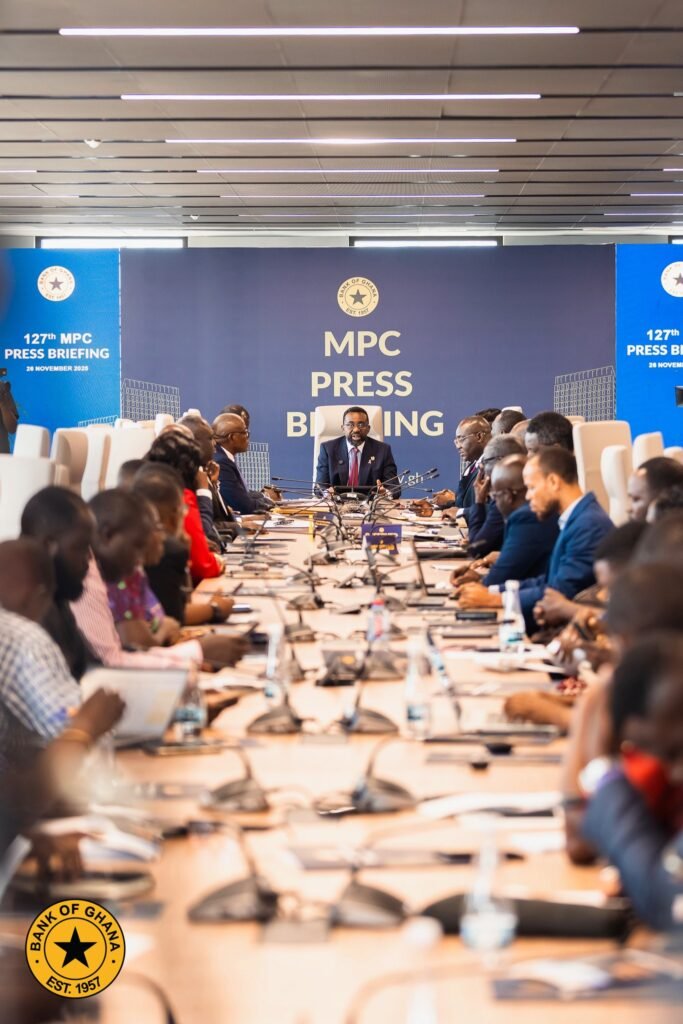
Return to 14-Day Bill Instrument
Alongside the rate cut, the Bank of Ghana announced that it would return to using the 14-day bill as its main instrument for conducting open market operations. This measure is intended to improve liquidity management in the financial system and enhance the effectiveness of monetary policy.
“We have one additional measure. In addition to the policy rate reduction, the bank will now return to the use of the 14 day bill as its main instrument for conducting open market operations.”
Dr. Johnson Asiama
The reintroduction of the 14-day bill allows the BoG to better manage short-term interest rates, control money supply, and signal policy direction to market participants. This complements the policy rate cut and strengthens the central bank’s proactive stance in supporting economic growth.
The market response to the MPC’s decision has been largely positive. Investors are optimistic that lower interest rates will encourage increased lending, investment, and consumption, boosting overall economic activity. The reduced cost of borrowing is expected to stimulate demand in key sectors, including manufacturing, services, and agriculture.
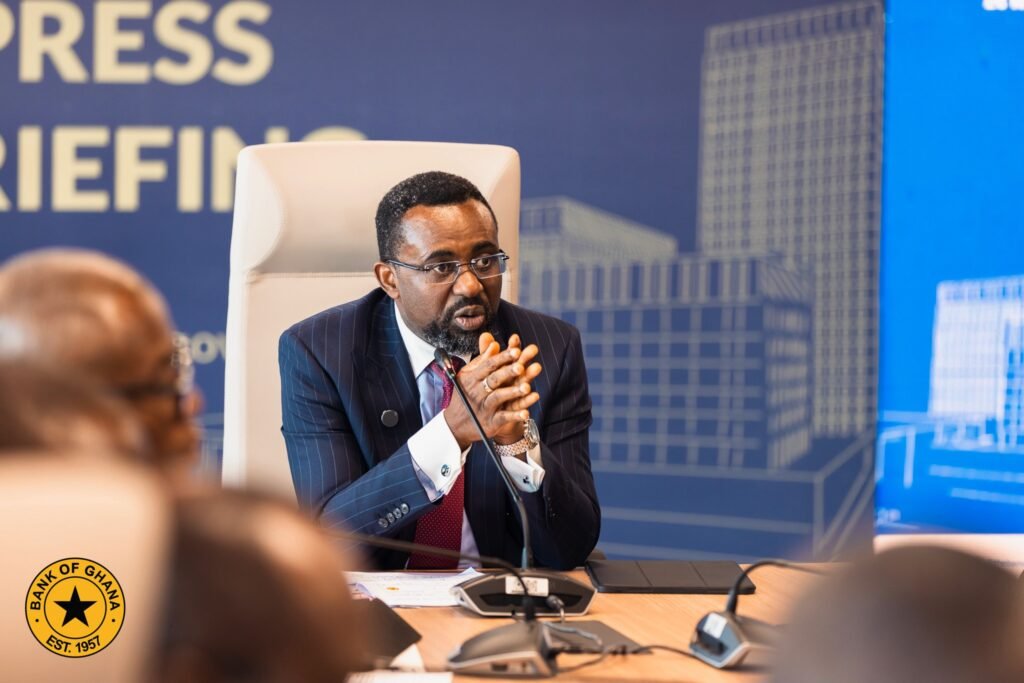
The policy rate cut also reinforces Ghana’s broader macroeconomic agenda, including private sector growth, job creation, and infrastructure development. By lowering borrowing costs, the BoG is sending a clear signal of support for sustainable and inclusive economic progress.
All in all, the Bank of Ghana’s landmark decision to reduce the policy rate by 350 basis points to 18 percent represents a decisive effort to stimulate growth while maintaining price stability. With inflation currently at 8 percent and risks to price stability moderating, the MPC has created an environment conducive to investment, lending, and broader economic recovery.
As the economy responds to this policy adjustment, stakeholders across financial markets, businesses, and households will be watching closely.
READ ALSO:BoG Confidence Index Dips in October

